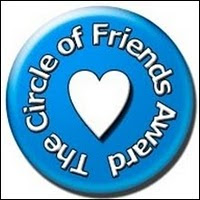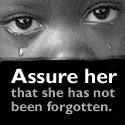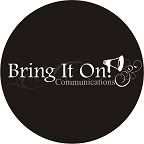Our church will be embarking on a campaign to give all residents of southeast Michigan the opportunity to hear the Gospel. The campaign is called E.A.C.H. -Everyone A Chance to Hear – and will be happening over the next nine months (you can learn more at www.eachtoday.com).
The Lord has been directing me to books that are helping me to expand my worldview. The latest book in this vein is ‘Not Like Me: A Field Guide for Influencing A Diverse World ’ by Eric Michael Bryant.
’ by Eric Michael Bryant.
Here is the synopsis of this book:
How You Can Become Responsive To and Reflective of the Global Community. According to author Eric Michael Bryant, in Not Like Me
Through humorous stories and pointed insights gleaned from Eric’s own personal experiences and failures, the experiences of others, and the life and teachings of Jesus, readers will discover how to move beyond ethnic, racial, cultural, or ideological barriers toward genuine friendships with others.
Bryant urges readers – women and men, democrats and republicans, church leaders and lay people from every denomination – to create a new future that connects to God’s heart by removing the religious baggage of Christianity to discover the world Jesus intended.
Followers of Christ will be inspired to actively engage the world in order to overcome stereotypes placed on us and influence those who have not been interested in Jesus because of these stereotypes. Spiritual seekers will find that, when stripped away from the religion created around him, Jesus dreams for the world is remarkable and refreshing.
Includes “Field Notes” from Ed Stetzer, Margaret Feinberg, Kevin Harney, Lon Wong, Amena Brown, Mark DeYmaz, Gerardo Marti, Kim Martinez, Princess Zulu, and Dan Kimball.
Here is the biography of this author:
Eric Bryant serves as an elder, speaker and navigator with the leadership team at Mosaic in Los Angeles, a church known for its creativity and diversity. He is part of the core teams for the Mosaic Alliance and The Origins Project. Bryant completed his Doctorate of Ministry in Entrepreneurial Leadership with Bethel Seminary. He lives with his wife, Debbie, and two children, Caleb and Trevi, in the middle of Los Angeles County.
And here is Eric (from Dodger Stadium earlier in the year) talking about this book (I always get a better grasp of the book when I know more about its author):
The Foreword is by Erwin McManus, the primary communicator and cultural architect of Eric’s church, Mosaic. He explains what he thinks is going to be of utmost importance to leaders in this century:
I am convinced that this is the leadership challenge for the twenty-first century: It is not whether we can embrace diversity or accept and love people who are different from us; it is whether we will be able to identify and reach the future leaders of world.
The challenge we face is more than how to add some color to our churches. The future of our churches and the vitality of the movement of Jesus Christ hinge on this very issue. Christianity’s credibility rests on the church’s resolve to not only embrace the differences in people but to celebrate and unleash them. (p. 12)
I love the idea put forth in the Introduction: The Art of Woo:
Rather than coming across as judgmental, homogeneous, isolated, conflict-filled, and irrelevant communities, we need to show the world what Christ truly intended us to be. We need to practice what I call “the art of woo.” In the sixth century BC, Sun Tzu taught us how to destroy others in The Art of War. Someone else has taught us how to manipulate people in The Art of Seduction, so why can’t we learn “the art of woo?” I love the Gallup Organization’s definition of woo: “winning others over.” The more common definition implies a romantic pursuit, one’s attempts to gain the affection of another person. Both descriptions are helpful for us in this journey. We need more woo. Since we are God’s children and representatives, those around us need to feel loved by us.
My hope is that these pages will inspire us to develop “the art of woo” so that we might learn to develop diverse communities, resolve conflict, overcome bitterness, create a better future, and even heal our fractured world. Wouldn’t it be amazing if as followers of Christ we found ourselves as part of the solution rather than as part of the problem? In the end, don’t people matter most? (p. 25)
That sounds like heaven on earth to me!
Eric has an interesting ‘take’ on the early church:
These early Christians spoke often of death – personally dying to self, the martyrdom of some in their community, and the death of the Messiah on the cross. More radically, the men and women who met together daily to study the Scriptures and to serve others claimed that the Messiah had died, had miraculously rose from the dead, and now was mystically communicating with them through the Holy Spirit. I can guarantee, the early Christians weren’t following the advice of Dale Carnegie and “winning friends and influencing people” as a result of their beliefs – so what was it? Perhaps they were reversing Carnegie’s mantra. Could it be that the early Christians were “winning people and influencing friends”? Developing friendships takes longer and requires more effort, but the impact is greater and longer lasting. (p. 35)
Dr. Bryant makes an observation about the tendency of many Christians these days:
Over the past few years, I seem to be meeting more and more people who choose their neighborhood as a place for ministry rather than simply as a place to have a house and catch some sleep at night. On the other end of the spectrum, too often I meet Christians who are just like everyone else, choosing to live in the places that provide the greatest safety and convenience or have the highest rated school districts. Then, as we have more income, we move out of our current locations so we can have even greater safety and convenience and even better school districts. This very natural way of living, sadly, has a way of circumventing the impact we can have in our neighborhoods for what we get rather than seeing them as places where we can find opportunities to give and to serve. We should think more like John F. Kennedy thought: “Ask not what your neighborhood can do for you, but what you can do for your neighborhood.” (p. 57)
He gives us guidelines for what needs to be done:
We need to create genuine relationships with those near us, and we need to be near those who need us. We need people moving into the high-rent districts, not to avoid the rest of us but to reach those who are there; we need people moving into impoverished areas to show God’s love. Both will require different types of sacrifices. We need people to rise up where they are to serve, to love, and to be a neighbor in the way Jesus intends us to be. (p. 60)
He also had a suggestion that I can really embrace:
Like Levi, we should throw parties for Jesus – parties on behalf of Jesus – by inviting those who are disconnected and lonely and who need a friend. We must create opportunities to serve and to love, and to introduce people to the living God through our relationships. God is found through people. God’s Spirit resides within those who follow him. Of course, God makes himself known in many different ways, through his creation, signs, visions, and the deep longings we feel inside, yet at the same time, he has created us as interactive and interconnected beings. God chooses to spread his message of love and hope through the lives of those who have experienced him. We meet God and introduce him to others in the context of our friendships. (pp. 70-71)
Our church regularly does outreaches to serve the community. This weekend, we will be hosting a Family Movie Night; we are encouraged to invite our friends and neighbors. That is a great way to show those outside the church that Christians are loving – and like to have fun, too!
In the ‘Field Notes’ in the Party chapter, Lon Wong makes this observation:
Parties aren’t essential to life, but they surely do make life a lot more joy filled. Wouldn’t it be amazing for people to see that Jesus compels us toward hope and celebration that tangibly spills over into our communities?
People are longing for someone, especially a friend, to do something out of the ordinary that they can become a part of. Our world is desperately in need of spaces that create meaningful connections. Throw parties; they can change everything. (p. 80)
Eric points out that Jesus did not cloister himself behind four walls with his disciples; he went out into the community and engaged with the people. Eric’s church does the same:
He invited this unlikely group to lose their lives in serving others. Contrary to what we would expect, Jesus did not invite them to follow him so that he could teach them the Scriptures, answer their prayers, meet their needs, or even take them to heaven. Jesus led the greatest small group in history because he was more than a Bible study leader or prayer group facilitator. Jesus was a revolutionary. His small group went on field trips to exorcise demons and perform miracles. After Jesus’ death and resurrection, Jesus’ small group changed the world.
Jesus’ eternal cause also creates a diverse community. A community on a mission to love and serve its city becomes diverse through the natural connections of relationships. At Mosaic, for example, we have seen homosexuals, followers of Hare Krishna, Scientologists, agnostics, Buddhists, Muslims, secularists, Democrats, Republicans, Socialists, Libertarians, children, adults, senior adults, entire extended families, and even “Christians” choose to follow Christ. How did this happen? These men and women from diverse backgrounds are all relationally connected to someone who goes to our church. The people we befriend will be the people we reach. We are not targeting people because of their heritage. We are trying to love, serve, and reach our friends, who just happen to be named Javier, Sandeep, Pam, Hwee Ching, and Molene. (p. 88)
I loved this example that Eric shared from the life of a teen member of his church:
Once Maria committed to the cause of Christ, she realized that her life didn’t match her beliefs. How could she share with her friends about the life-changing power of God when she wasn’t allowing God to change her? Even though I had shared with the teens the importance of sexual purity and challenged them to read the Scriptures, none of this mattered to Maria until she became more concerned about her friends that about herself. Connecting to the cause of Christ guided her through her moral struggles and even pulled her into the Scriptures. By attempting to help change the lives of her friends, her life was changed. (p. 91)
I could really relate to this perspective on relationships and conflict:
How many times have our relationships ended up embroiled in conflict, only to be solved the moment we sat down to talk about it? We end up having fights in our minds with people before we sit down with them. We assume that things are much worse than they really are and that people have evil intentions, but those assumptions are usually just the result of a misunderstanding. Jesus, knowing that we lean toward pride and conflict, guides us toward lives filled with peace. (p. 120)
In the ‘Field Notes’ in this chapter on ‘Uncivil War,’ Dr. Mark DeYmaz offers this godly advice:
Therefore, be prepared to extend grace and mercy to all who offend you, knowing that wounded people react in wounded ways. Many are driven by deep-seated insecurities, sensitivities, and loyalties of which we are, for the most part, largely unaware. Consequently, they live in a state of self-deception and in bondage to the hurts or regrets of their past. Mix in diverse social and cultural perspectives, and the resulting conflicts can get quite complicated. On the other hand, those types of relationships – when patiently developed – can be like mortar to the bricks, forming a sturdy foundation of trust and authenticity between people of different backgrounds. The fact is that a single act of forgiveness to someone of another culture who has offended you will manifest the power of Christ to break dividing walls before all who witness it. (p. 122)
There is a family relationship that is fractured, and I need to put this advice into practice – before it’s too late…
I love this perspective from Dr. Bryant on the political landscape over the last several decades, and how it has been destructive to the cause of Christ:
The Christian Coalition (and in earlier days the Moral Majority) has often been so vocal about its stance on issues such as abortion and homosexuality that its members have yelled themselves out of genuine conversations. Like protester facing off across the street from each other, they yell and scream and chant to make their point, but they are unable to hear their opponents, who are doing the same thing.
So it is with those who reside to the left of center on the political spectrum. Some Christians believe that they will find answers to the nation’s problems by joining with the Democrats, who claim to be more loving and more tolerant than their conservative counterparts, yet some of the people who support a more liberal government have moved toward a more liberal theology.
I am inspired when I meet people who decided not to just get angry about an issue but to do something about it. Rather than debating with others about pro-life or pro-choice, they adopt a child, become foster parents, and mobilize others to care for babies whom some moms could not keep. We should not be content with just being moved when we watch the news or hear of something that angers us; we should be moved to action. (p. 173)
And I love his perspective on eternity and the Kingdom of God here on earth:
When we understand this revelation from Christ, everything changes. We cannot see our relationship with God as simply our ticket to heaven. When we enter a relationship with God, we become citizens of a new kingdom. Our calling in life is to serve the King by serving others outside of this kingdom. We must infiltrate earthly kingdoms by guiding others to switch their loyalty to Christ’s invisible kingdom. Stepping into the invisible kingdom reveals out destiny. We discover who we are meant to be and what we are meant to do. (p. 222)
One of my favorite things about this book is Eric’s transparency about his life and his heart. At Baylor University, he was on a Revival Steering Committee. The subsequent revival event was particularly profound for him personally, as he stepped up to an open microphone:
At first, no sound came out of my open mouth. I worked harder, fighting through my own tears and emotions to share my deepest need. The words came stumbling out of my mouth louder than I had imagined they would: “God, I desperately need you. I don’t love people. I don’t care about people who do not know you. All I care about is myself. Help me to love people, no matter who they are or what they do. Help me to love people the way you do.”
....I honestly don’t know if we really did experience revival that night, since no long-term changes seemed to happen on campus. (Really, I don’t even remember short-term changes). The one thing I knew for sure was that I would never be the same. Jesus had answered my prayer. The world looked different to me. Rather than seeing the world as a place in which I had to conform, conquer, or comply, I saw people. I saw people with genuine needs – needs that could only be met by a God who loved them. I realized that God actually wanted me to be a part of meeting those needs, and, even more miraculously, I actually wanted this to be the case. I caught a glimpse of how God must feel when he looks at the billions of people in this world. When God looks at those who do not love him, he sees hope, potential, possibilities, and uniqueness – and he feels love. Suddenly I saw and felt the same things. Rather than the anger or judgment I had felt toward the “hypocrites” on campus, I felt concern, sorrow, and even shame, for I realized that I, too, lived a duplicitous life. (pp. 238-239)
For someone’s perspective to be changed so profoundly in such a short period of time is indeed a miracle from the hand of God!
I was profoundly changed by this book. Eric looks at the world through the eyes of Christ; it is a worldview that all of us should exemplify. I intend to keep this book close at hand to remind me how the Lord wants us to look at His world. I thank Eric for writing this heart-felt and practical field guide for those of us who are moving forward on this journey in Christ.
You can order this book here .
.
This book was published by Zondervan and provided by the Blog Tour Spot for review purposes. I am happy to be participating in this blog tour with these other bloggers.
_____________________________________________
I have one copy of this insightful book that I would love to send along to one of you!
There are several ways to gain entry:
1) Leave a comment here on the blog, telling me which thoughts I shared from this book agree with or disagree with your worldview. Please make sure to leave your email address in this format – sample[at]gmail[dot]com.
2) Follow me on Twitter; I will more than likely follow you back! If you are already a Twitter follower, that counts, too! Please leave a new comment to that effect.
3) Follow me as a Google Friend on this blog; if you are already a Friend, that counts, too! Please leave a new comment to that effect.
4) Become my Facebook friend. Please leave a new comment to that effect.
5) Follow this blog as a NetWorked Blog Follower after you’ve become my Facebook friend. Please leave a new comment to that effect.
So there are five chances to enter! Please limit one entry per option.
This giveaway is for U.S. residents only. The deadline for entry is Friday, November 5, 2010 at 11:59 p.m. EST. A winner will be chosen via the Random Number Generator on Saturday, November 6, 2010 and will be contacted via email. The best to all of you!





























.jpg)







12 comments:
"The fact is that a single act of forgiveness to someone of another culture who has offended you will manifest the power of Christ to break dividing walls before all who witness it."
This resonated in my life. Along with many others!
desertrose5173 at gmail dot com
I follow you on Twitter.
desertrose5173 at gmail dot com
I follow through GFC.
desertrose5173 at gmail dot com
I'm a FB friend.
desertrose5173 at gmail dot com
I follow as a NWBF.
desertrose5173 at gmail dot com
CARMAN sent me!
Carman sent me! I'd LOVE to win this book. Sounds good!
seizethebookblog(at)gmail(dot)com
We need to create genuine relationships with those near us, and we need to be near those who need us. (I agree)
I am a twitter follower!
seizethebookblog(at)gmail(dot)com
I am a Google friend!
seizethebookblog(at)gmail(dot)com
I am a Facebook Friend!
seizethebookblog(at)gmail(dot)com
I am a NetWorked Follower!
seizethebookblog(at)gmail(dot)com
"How many times have our relationships ended up embroiled in conflict, only to be solved the moment we sat down to talk about it? We end up having fights in our minds with people before we sit down with them."
I love this quote! It sounds like me! I am very guilty of doing this.
Thanks for the chance to win.
coolandrew123 [at] gmail [dot] com
Post a Comment